
What's Your Problem?
Pushkin Industries
Every week on What’s Your Problem, entrepreneurs and engineers talk about the future they’re trying to build – and the problems they have to solve to get there. How do you take a drone delivery service you’ve built in Rwanda and make it work in North Carolina? How do you convince people to buy a house on the Internet? How do you sell thousands of dog ramps to weiner dogs all across America when a pandemic breaks the global supply chain? Hosted by former Planet Money host Jacob Goldstein, What’s Your Problem helps listeners understand the problems really smart people are trying to solve right now. iHeartMedia is the exclusive podcast partner of Pushkin Industries.
- 42 minutes 5 secondsWhat Claude Shannon Figured Out
Claude Shannon is a major figure in the history of technology. Known as the father of information theory, Shannon spent decades at Bell Labs and MIT. But what exactly did Claude Shannon figure out, and why is it so important?
To answer that question, Jacob talked with David Tse, a professor of electrical engineering at Stanford who studied under one of Shannon’s students, and who teaches Shannon to his own students today. David used Shannon's work to make a breakthrough in wireless communication that underpins every phone call we make today.See omnystudio.com/listener for privacy information.
16 January 2025, 5:30 am - 30 minutes 30 secondsMeasles: The Cancer Killer?... from Incubation
We thought we knew everything there was to know about measles. But in recent years, new research has revealed that the virus attacks the immune system and creates effects far more dramatic than a rash and fever. For this episode we’re joined by Michael Mina, a former Harvard epidemiologist now at eMed, who helped discover how measles was causing “immune amnesia.” Our second guest is Stephen Russell, a former Mayo Clinic researcher who co-founded a company called Vyriad. Russell is trying to use the measles virus to treat cancer. Enjoy this episode from Incubation, another Pushkin podcast.
See omnystudio.com/listener for privacy information.
19 December 2024, 5:30 am - 43 minutes 20 secondsRoboPod and the Perpetual Money Machine – Cautionary Questions 2… from Cautionary Tales
What really drove the 2008 financial crash? What’s a shadow bank? And what’s the connection between NIMBYs and BANANAs? Tim Harford and Jacob Goldstein answer more of your questions. Enjoy this episode from Cautionary Tales, another Pushkin Podcast.
See omnystudio.com/listener for privacy information.
12 December 2024, 5:30 am - 50 minutes 38 secondsTurning Solar Energy Into Fuel (The Solar Era, Part 3)
Solar power and batteries are becoming cheap and ubiquitous. Great. But there are problems batteries can’t solve – like fueling ships and planes. One way to solve those problems: Use solar power to create hydrogen, and turn that hydrogen into fuel.
Today’s guest is Raffi Garabedian, the co-founder and CEO of Electric Hydrogen. Raffi’s problem is this: How do you turn solar and wind energy into clean hydrogen that’s cheap enough to compete with fossil fuel?
This is the last of three episodes we’re doing about the solar-power revolution. Listen to the previous episodes on your podcast player or at our website: https://www.pushkin.fm/podcasts/whats-your-problemSee omnystudio.com/listener for privacy information.
2 December 2024, 5:30 am - 51 minutes 9 secondsGet Happier, Help Others: Some Good Ideas About Giving
It's the season of giving: colorful paper and shiny bows, sure, and charitable giving, too. In this special episode, Jacob Goldstein, the host of What's Your Problem, gets smart about donating.
Did you know that spending money on others makes you happier than spending money on yourself? Or that altruistic nerds have discovered four of the most impactful charities in the world (per dollar spent)? Have you ever wondered how poker players think about giving?
Dr. Laurie Santos from The Happiness Lab, Elie Hassenfeld of GiveWell, and Nate Silver and Maria Konnikova from Risky Business talk about how to maximize your giving – and why you’ll be happy you did.
Link to donate: https://givingmultiplier.org/happinesslab
Listen to The Happiness Lab with Dr. Laurie Santos
Listen to Risky Business
See omnystudio.com/listener for privacy information.
2 December 2024, 5:01 am - 31 minutes 17 secondsCan Hot Bricks Save the World? (The Solar Era, Part 2)
This is the second of three episodes about the solar-power revolution. Last week, we talked about how solar power got so cheap. This week, we’re talking with someone who is building giant plants around the world to take advantage of all that cheap, intermittent energy.
John O'Donnell is the co-founder of Rondo Energy. John’s problem is this: How do you turn intermittent energy into the cheap, reliable, intense heat that companies around the world need to make everything from steel beams to t-shirts?See omnystudio.com/listener for privacy information.
28 November 2024, 5:30 am - 44 minutes 8 secondsHow the Sun Won (The Solar Era, Part 1)
In the past 20 years, the price of solar panels has fallen by more than 97 percent. This extraordinary decline is good news for the world – and it’s transforming the way energy is produced and consumed.
For the next few episodes, we’ll be talking to people who are in the middle of this solar power revolution to find out how it happened, and what it will mean for the world.
Today, Jenny Chase, the author of Solar Power Finance Without the Jargon, tells the story of how solar power got so cheap and where it’s exploding today, and she explains what problems we still need to solve to pull off a worldwide energy transition.
See omnystudio.com/listener for privacy information.
21 November 2024, 5:30 am - 31 minutes 54 secondsDrugs in Space
Paul Reichert is a research scientist at Merck, working on improvements to how we administer drugs to patients. Paul's problem is this: How can you run experiments in space to learn how to make better drugs on Earth?
See omnystudio.com/listener for privacy information.
14 November 2024, 5:30 am - 44 minutes 32 secondsThe World Is Getting Better (Really)
Hannah Ritchie is a data scientist and the deputy editor of Our World in Data. She is also the author of Not the End of the World: How We Can Be the First Generation to Build a Sustainable Planet. Hannah’s problem is this: How do you use data to get past the doomsday headlines and solve big problems to achieve sustainability?
Check out Our World in Data: https://ourworldindata.org/See omnystudio.com/listener for privacy information.
7 November 2024, 5:30 am - 28 minutes 32 secondsRabies: When Monsters are Real…from Incubation
Why has rabies invaded our nightmares for centuries? Author and veterinarian Monica Murphy tells us about the cultural history of rabies (which involves vampires and werewolves!) and how our long nightmare with the disease came to an end. Then, wildlife biologist Kathy Nelson tells us about a surprising program that works to control raccoon rabies… from the sky. Enjoy this episode from Incubation, another Pushkin podcast.
See omnystudio.com/listener for privacy information.
31 October 2024, 4:30 am - 36 minutes 26 secondsUsing Gene Therapy to Help the Blind See
After decades of research, gene therapy is starting to work. Shannon Boye is a professor of cellular and molecular therapeutics at the University of Florida. She is also the co-founder and chief scientific officer of Atsena Therapeutics. Shannon’s problem is this: How do you use gene therapy to cure certain forms of blindness?
See omnystudio.com/listener for privacy information.
17 October 2024, 4:30 am - More Episodes? Get the App
- https://www.pushkin.fm/
- en-US
Your feedback is valuable to us. Should you encounter any bugs, glitches, lack of functionality or other problems, please email us on [email protected] or join Moon.FM Telegram Group where you can talk directly to the dev team who are happy to answer any queries.
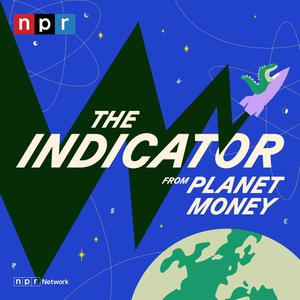 The Indicator from Planet Money
The Indicator from Planet Money
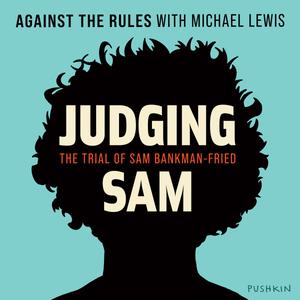 Against the Rules with Michael Lewis: The Trial of Sam Bankman-Fried
Against the Rules with Michael Lewis: The Trial of Sam Bankman-Fried
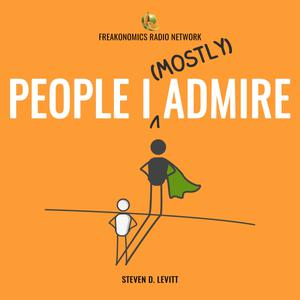 People I (Mostly) Admire
People I (Mostly) Admire
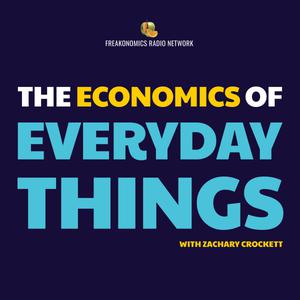 The Economics of Everyday Things
The Economics of Everyday Things
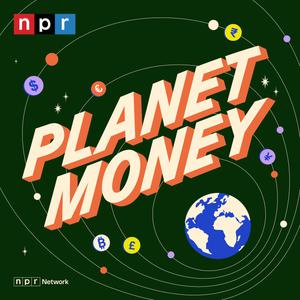 Planet Money
Planet Money
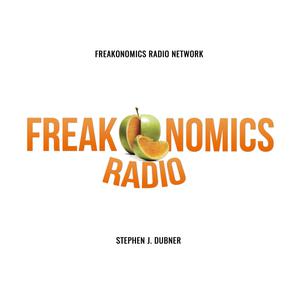 Freakonomics Radio
Freakonomics Radio